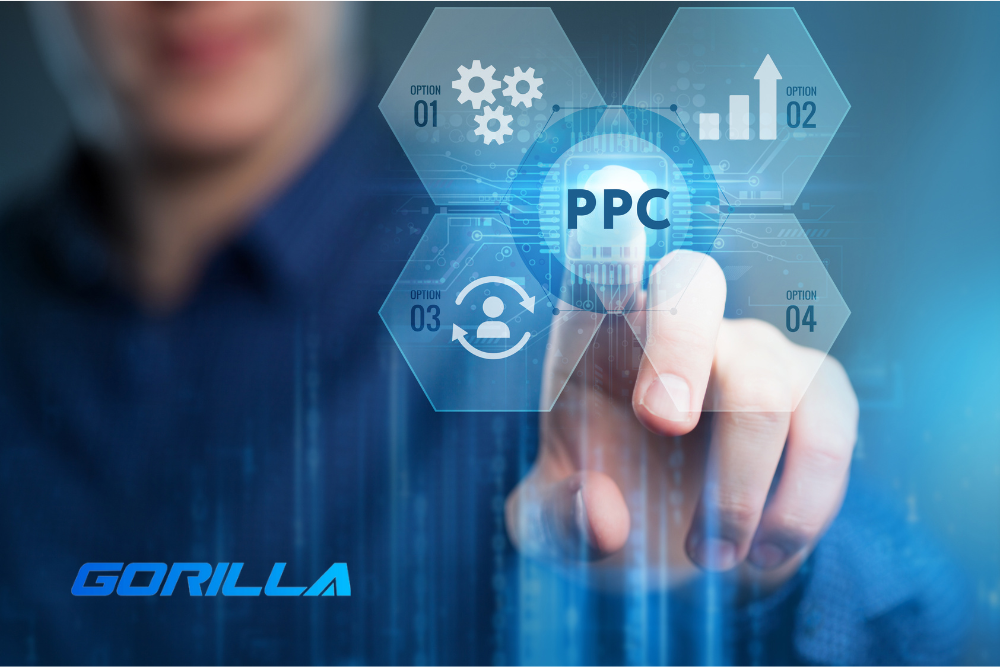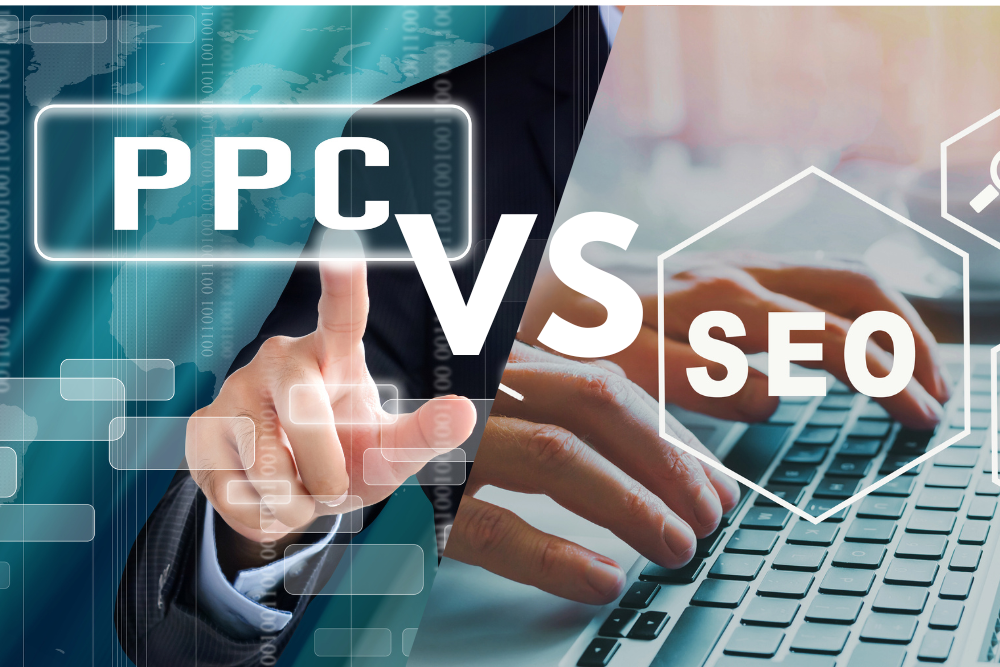
PPC, or pay-per-click, is a type of online advertising model that allows businesses and individuals to place ads on search engines and other websites. PPC charges advertisers each time someone clicks on their ad, hence the name “pay-per-click.” This method is cost-effective for businesses of all sizes to reach their target audience and drive traffic to their website.
As a beginner in PPC, it can seem overwhelming with all the technical terms and strategies involved. However, understanding the basics is crucial for success in this field. In this guide, we will cover everything you need to know about PPC, from its benefits to different types of campaigns and how to measure success. So, let’s dive in and learn the fundamentals of PPC!
What is PPC Advertising?
PPC advertising is a form of online marketing in which businesses and individuals pay for ad placements on various platforms, such as search engines like Google and Bing, social media sites like Facebook and Instagram, and other websites that offer space for advertisements. These ads can be text, images, or videos.
The concept behind PPC advertising is simple: advertisers only pay when someone clicks on their ad. This means that advertisers are paying potential customers who have shown interest in their product or service by clicking on the ad.
And the best part? Advertisers can set a budget for their campaign, ensuring they only pay for clicks within their desired range. This makes PPC an affordable option for businesses of all sizes, as they control how much they spend on advertising.
PPC also allows advertisers to target specific audiences based on demographics, interests, and search intent. This precision targeting enables businesses to reach potential customers more likely to be interested in their offerings, increasing the chances of conversion and return on investment (ROI).
How does PPC advertising work?
PPC works through a straightforward yet strategic process. First, advertisers select keywords or phrases relevant to their products or services. When users search for these keywords, the PPC platform uses an auction system to determine which ads are displayed and their positions on the search engine results page (SERP). Advertisers bid on these keywords, indicating how much they will pay for each click.
Once the auction is complete, ads are displayed to users alongside organic search results. The position of an ad can depend on several factors, including the bid amount, the relevance of the ad to the search query, and the quality score assigned by the platform, which measures the ad’s performance based on its click-through rate, landing page quality, and overall user experience.
When a user clicks on an ad, they are directed to the advertiser’s landing page, where conversions can occur, such as making a purchase, filling out a form, or signing up for a newsletter. This entire process allows businesses to drive targeted traffic effectively and measure the effectiveness of their advertising efforts.
Benefits of PPC Advertising
PPC advertising offers numerous benefits for businesses looking to reach their target audience and increase their online presence. Some of the key benefits include:
- Cost-effective: With PPC, advertisers only pay when someone clicks on their ad, making it affordable for businesses of all sizes. Since advertisers can set a budget for their campaigns, they have control over how much they spend on advertising.
- Precise targeting: PPC allows businesses to target specific audiences based on demographics, interests, and search intent. This precision targeting increases the chances of conversion and ROI.
- Quick results: Unlike traditional forms of advertising, PPC delivers quick results as ads are displayed immediately after the campaign is launched. This makes it an excellent option for businesses looking to increase website traffic and conversions quickly.
- Measurable results: One of the biggest advantages of PPC is its ability to measure success through metrics such as click-through rate (CTR), cost per click (CPC), and conversion rate. These metrics allow businesses to track their campaign’s performance and make necessary adjustments for better results.
PPC is a powerful tool that allows businesses to reach their target audience effectively and efficiently. With its cost-effectiveness, precision targeting, quick results, and measurability, it is no wonder that PPC has become an essential component of many businesses’ marketing strategies.
PPC vs. SEO
PPC and SEO (search engine optimization) are often mentioned together as they are both techniques used for increasing website traffic. However, they differ significantly in terms of their approach and benefits.
PPC works by paying for ad placements on search engines or websites, while SEO focuses on optimizing a website’s content and structure to rank higher organically on search engines. While PPC delivers quick results, SEO is a long-term strategy that requires consistent effort and time to see its impact.
Another significant difference is cost – PPC requires advertisers to pay for each click, while SEO has no direct costs. However, achieving high rankings through SEO can be challenging and may require hiring professionals or investing in tools.
Regarding targeting, PPC offers more precise options as advertisers can choose specific keywords and demographics. SEO relies on creating high-quality content that appeals to a broader audience.
A Step-Step Guide to Setting Up a PPC Advertising Campaign
Now that we understand PPC basics, let’s look at how to set up a successful campaign. Here are the steps involved:
Define your goals
Before embarking on a PPC campaign, defining clear, specific goals that align with your overall marketing strategy is crucial. Start by identifying what you aim to achieve—increasing website traffic, generating leads, boosting sales, or enhancing brand awareness. These objectives will guide decisions throughout the campaign, such as target audience, keywords, and budget allocation.
For instance, if the goal is to increase sales, focus on keywords that have strong purchase intent and create ads that offer promotions or incentives. On the other hand, if you aim to generate leads, consider using compelling calls to action directing users to registration forms or free trials.
By having well-defined goals, you set a solid foundation for measuring success and making data-driven adjustments to optimize your campaign over time. Setting realistic and achievable goals is essential to ensuring a successful PPC campaign.
Choosing the right keywords for PPC
Choosing the right keywords is crucial for a successful PPC campaign as they determine when and where your ads will appear. Start by brainstorming relevant keywords related to your products or services. Then, use keyword research tools such as Google Keyword Planner or SEMrush to identify popular and high-performing keywords. These tools provide insights into search volume, competition, and cost per click (CPC) for each keyword.
When selecting keywords, consider their relevance to your business and the intent behind them. For instance, more specific long-tail keywords may have lower search volume but can be more effective in reaching a targeted audience with higher purchase intent.
It’s also essential to regularly review and update your list of keywords based on performance data and changes in market trends. By continuously optimizing your keyword selection, you can improve the effectiveness of your PPC campaign and achieve better results.
Setting a PPC advertising budget
Setting an appropriate budget is crucial for any PPC campaign as it determines how much you can spend on advertising and the potential return on investment (ROI). Start by considering your business’s overall marketing budget and allocating a portion towards PPC. Then, determine a daily or monthly budget for sufficient testing and optimization based on your goals and keyword research.
It’s important to regularly review performance data and adjust the budget accordingly to maximize ROI. For instance, if certain keywords are performing well with a lower CPC, consider allocating more budget to increase the potential for conversions.
Additionally, setting realistic expectations and not overspending on keywords that may not yield effective results is essential. By carefully managing your PPC budget, you can achieve better ROI and make the most out of your campaign. Setting a budget requires balancing cost with potential return and continuously optimizing based on performance data.
Create compelling ad copy
The success of a PPC campaign heavily depends on the well-crafted and compelling ad copy. Ad copy should be concise, attention-grabbing, and relevant to the targeted keywords and audience. Use strong calls to action and highlight unique selling points to entice users to click on your ad.
It’s also essential to conduct A/B testing with different ad copy variations to see which performs best. This testing allows for continuous improvement and optimization of the campaign.
Setting up landing pages
Landing pages are crucial for converting clicks into leads or sales. They should be relevant and aligned with the ad copy, providing a seamless user experience.
Make sure that your landing page has a clear call to action and a visually appealing design that guides users toward taking the desired action, whether it’s making a purchase or filling out a form. It’s also important to regularly test and optimize landing pages for better conversion rates.
Tracking PPC advertising campaign performance
To measure the success of a PPC campaign, it’s crucial to track and analyze its performance regularly. Tools like Google Analytics are used to monitor key metrics such as click-through rate (CTR), conversions, and cost per acquisition (CPA). This data provides insights into which keywords, ad copy, and landing pages perform well and where adjustments may be needed.
By regularly tracking performance, you can make data-driven decisions to optimize your campaign for better results. Additionally, it’s important to set up conversion tracking to understand how many clicks ultimately lead to desired actions on your website.
So these are the key factors to remember when creating and managing a PPC campaign. By defining clear goals, carefully selecting keywords, setting a budget, creating compelling ad copy, optimizing landing pages, and tracking performance, you can succeed and drive valuable results for your business through PPC advertising. So don’t hesitate to experiment with PPC and see how it can benefit your marketing strategy!
Does your business need PPC advertising?
PPC can be a valuable addition to any digital marketing strategy, but it may not be the best fit for every business. Consider whether your target audience uses search engines and whether there is significant competition in your industry for relevant keywords. Additionally, consider the potential return on investment (ROI) for your specific products or services.
If you have a limited budget, it may be more beneficial to focus on other forms of advertising that offer longer-term results. However, if you have a competitive product or service with high profit margins and a target audience that actively searches for them online, then PPC may be an excellent choice for driving immediate traffic and conversions.
It’s important to carefully evaluate your business needs, goals, and resources before deciding if PPC fits you. Ultimately, it’s about finding a balance between your business’s short-term results and long-term growth. So consider all factors carefully and consult with a digital marketing professional to determine if PPC is the best choice for your business.
How Much Money Should You Invest in PPC Advertising?
The amount of money you should invest in PPC depends on various factors, such as your business goals, industry competition, and budget. It’s important to approach PPC strategically and not just throw money at it without a clear plan.
Start by setting realistic goals for your campaign and then determine how much you will spend to achieve those goals. Research the average cost per click (CPC) for keywords in your industry and use that as a guide when setting your budget.
Remember to also consider the potential return on investment (ROI) for your specific products or services. If you have a high profit margin, it may be worth investing more in PPC to drive immediate conversions. However, if your products or services have lower margins, it’s important to carefully evaluate the cost and potential return before allocating a significant budget to PPC.
It’s also essential to review performance data regularly and adjust the budget as needed. This allows for efficient spending and campaign optimization for better ROI. Finding the right balance between budget and potential return is key when determining how much money to invest in PPC.
Mistakes to Avoid in PPC Advertising Campaigns
Here are some common mistakes to avoid when running a PPC campaign:
- Not doing proper keyword research: Choosing the wrong keywords can result in targeting irrelevant audiences or overspending on underperforming keywords. Plus, not utilizing negative keywords can also lead to wasted ad spend.
- Poorly written ad copy: Ad copy entices users to click on your ad, so it must be well-crafted and compelling. Avoid generic or confusing language, and make sure the messaging aligns with the landing page.
- Not setting a budget or continuously optimizing it: Not having a set budget or constantly monitoring and adjusting it can result in overspending without seeing significant returns.
- Not regularly testing and optimizing landing pages: Landing pages are crucial in converting clicks into leads or sales. Regularly testing and optimizing them for better performance is essential.
- Ignoring performance data: To perform well, PPC campaigns require continuous monitoring and adjustment. Ignoring performance data can result in wasted ad spend and missed opportunities for optimization.
- Not setting up conversion tracking: Without conversion tracking, it’s challenging to understand the ROI of your PPC campaign and make informed decisions for optimization.
By being aware of these mistakes and avoiding them, you can set your PPC campaign up for success and achieve better results. So always stay vigilant and continuously monitor your campaign’s performance to ensure its effectiveness.
Master PPC and Amplify Your Firm’s Growth with Gorilla Marketing
Discover the essentials of PPC advertising with Gorilla, where our expert team is dedicated to turning clicks into clients faster and more cost-effectively than ever. With our innovative strategies and data-driven approach, you can achieve an impressive 200% increase in leads.
Experience a significant surge in revenue while effectively managing your budget, allowing you to maximize your return on investment without unnecessary inflation of costs. Let us help you navigate the complexities of PPC and unlock your business’s full potential!
Our expert PPC management in Phoenix ensures rapid, high-quality lead generation at half the cost. Ready to see explosive growth? Call us at 855-518-3084 today or schedule a discovery call to start transforming your PPC strategy with Gorilla. Join us and watch your firm thrive!
Top FAQs About PPC Advertising
What is PPC Marketing, and How Does It Relate to Search Engine Marketing?
PPC marketing, or pay-per-click marketing, is a type of digital advertising where advertisers pay each time a user clicks on one of their online ads. It is a crucial component of paid search engine marketing (SEM), which involves promoting websites by increasing their visibility in search engine results pages primarily through paid advertising.
How Do I Set Up a Google Ads Account for PPC Ads?
You must set up a Google Ads account to start with PPC ads. Visit the Google Ads website, click on “Start now,” and follow the instructions to create your account. Once set up, you can create campaigns and set up your ad groups to target specific audiences.
What Are Ad Groups and How Are They Used in PPC Ads?
In the context of PPC ads, ad groups are essential to your campaigns. Each ad group contains one or more ads that target a shared set of keywords. Strategically organizing your PPC ads into ad groups helps deliver more relevant ads to users searching for related topics.
What Is the Google Display Network and How Is It Used in PPC Marketing?
The Google Display Network is a collection of websites—including specific Google websites like Google Finance, Gmail, Blogger, and YouTube—that show Google Ads. This network allows you to place your PPC marketing ads on various news sites, blogs, and other niche sites across the internet to reach more potential customers.
Can You Explain the Importance of Search Ads in PPC Marketing?
Search ads are PPC marketing displayed on search engine results pages. When someone types a query into a search engine, these ads appear alongside or above the organic search results, making them highly visible and effective in driving targeted traffic to your website.
How Do I Use the Google Ads Interface to Manage My PPC Campaigns?
The Google Ads interface is the main dashboard for managing your PPC campaigns. It allows you to create new campaigns, set budgets, add or adjust ad groups, review your ads’ performance, and use tools like the Google Ads Editor for bulk edits and optimizations.
What Is the Google Ads Editor and How Can It Enhance My PPC Marketing?
The Google Ads Editor is a free, downloadable application for managing your Google Ads campaigns offline. It is particularly useful for making bulk changes, quickly adjusting ad groups, and optimizing multiple campaigns simultaneously, thus enhancing the efficiency and effectiveness of your PPC marketing efforts.
Related Content: PPC for Lawyers: The Ultimate Guide











